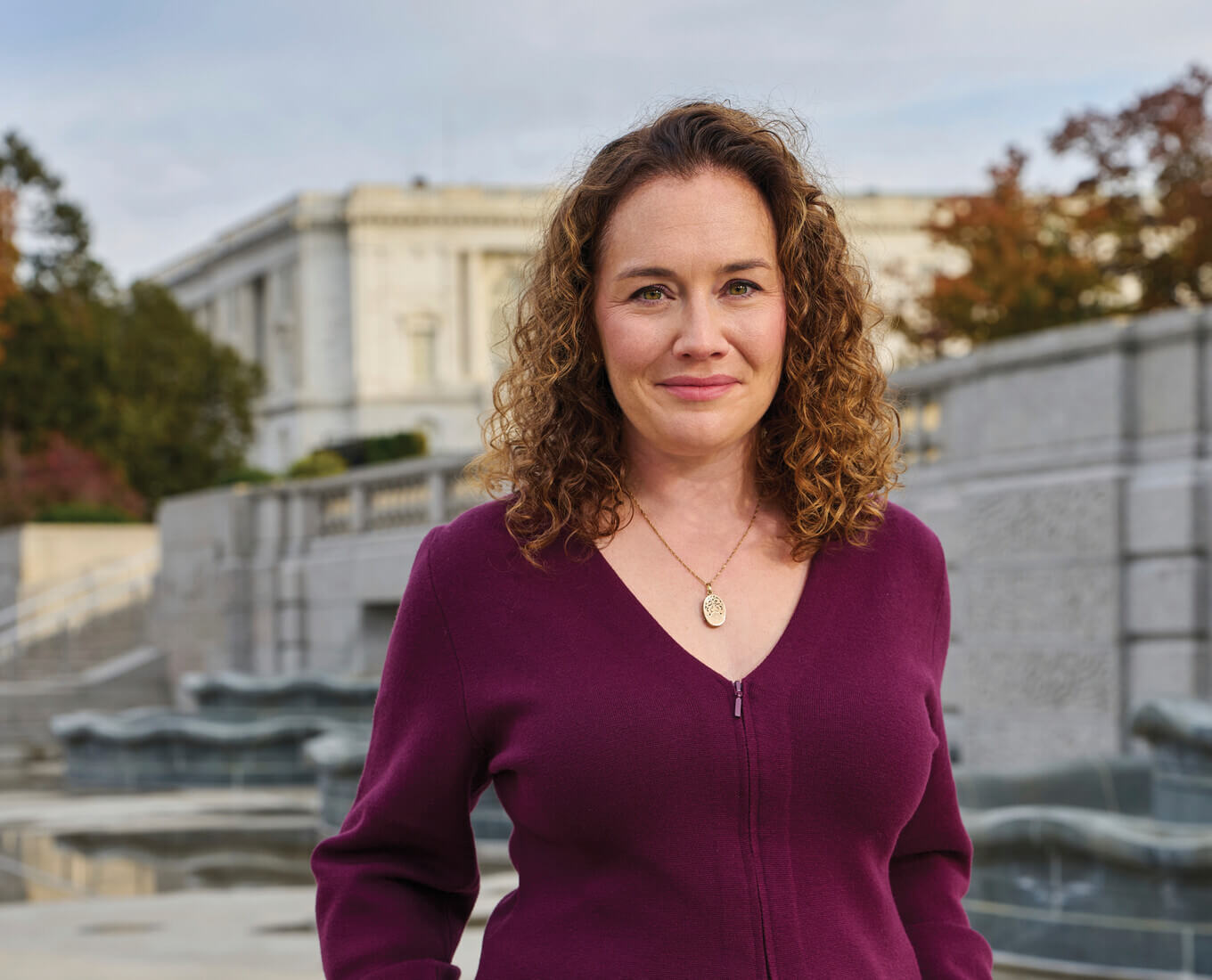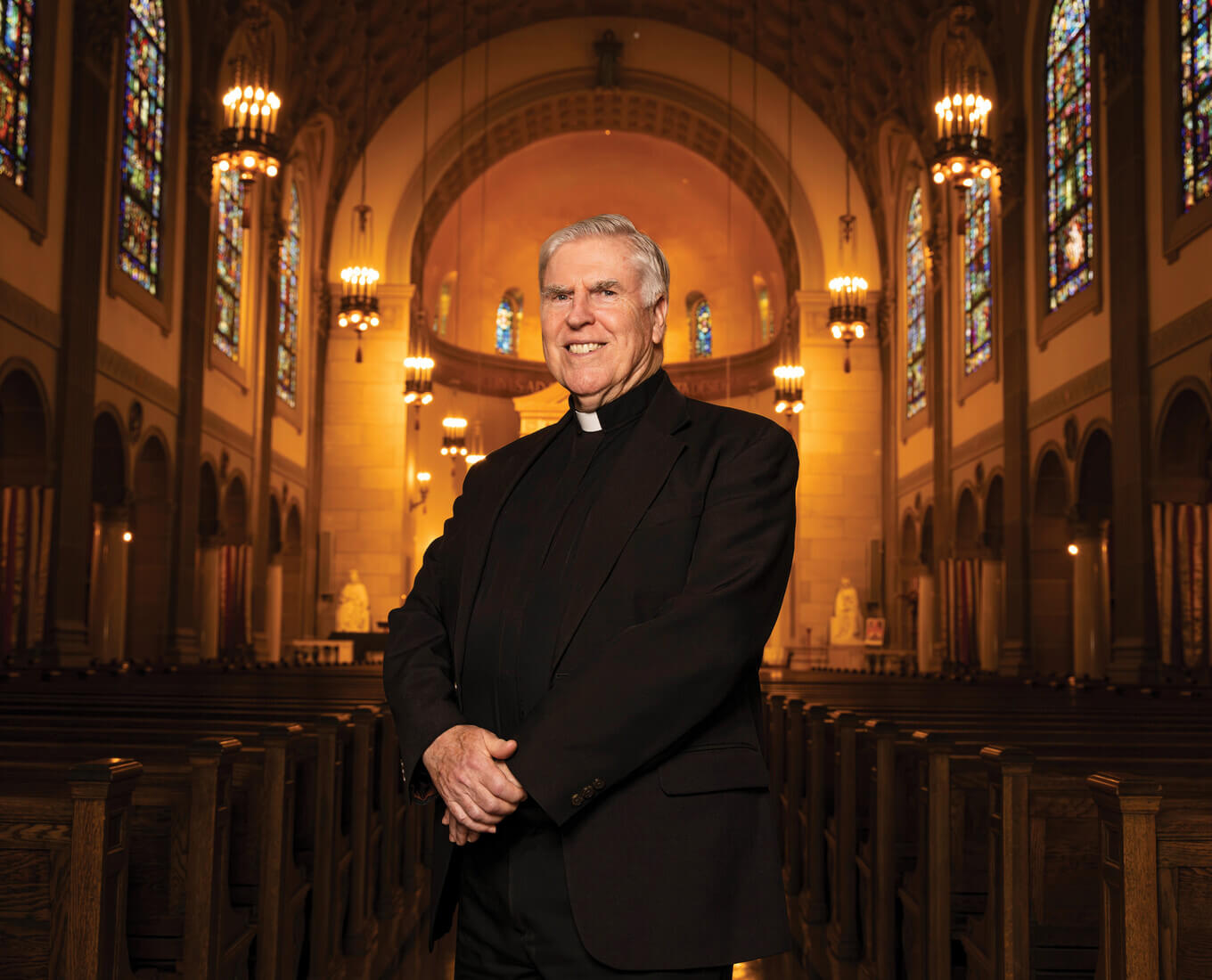After applications are submitted, time seems to endlessly stretch on before acceptance letters hit mailboxes. And many questions begin to swirl: Who is reading my application? What are they looking for? How do they decide who gets in and who doesn"t from thousands of applications?
From the outside, the college admission process feels like a mystery. Hear directly from Holy Cross' Ann McDermott, director of admission, and Margaret Freije, provost and dean of the College, for a look behind the curtain.
What are your goals for an incoming class? What attributes do you seek for the class as a whole?
Freije: At Holy Cross we are a community that asks big questions and values diverse perspectives in our search for answers. We collaborate, challenge and support one another with respect and humility. In order to best support our mission, we seek to bring in a diverse class in which students represent a variety of backgrounds, ethnicities, religions, nationalities and geographies, among other attributes. We want students who bring different talents and perspectives to our community.
What are you looking for in a Holy Cross student?
McDermott: I think we all know Holy Cross is tough academically, so we look for students who challenge themselves. We want to see students taking the most rigorous curriculum offered — whatever that’s defined as in their particular high school — and doing really well. But then we also want to see students who have identified for themselves their passions and interests, and whether its band or student government, we want to see students who have invested and committed themselves. Writing also matters to us a lot. Holy Cross is really writing heavy so we spend a lot of time looking at students' essays.
Overall, I think the hallmark of Holy Cross students is that they tend to be bright and accomplished and have a bit of a fire in the belly academically. They are intellectually curious, not just seeking accomplishment but to grow and be stretched. They push themselves beyond their comfort zones, and think creatively. They also tend to be pretty service oriented — that’s one of the most common things students are involved with.
How do students learn about Holy Cross?
McDermott: In addition to learning about us through family and friends, their guidance counselors and the many college guides that exist in print and online, students interact with our admission staff when we visit their high schools or at admission fairs. Our staff visits 800 high schools across the country each year, ranging from public high schools to independent and private schools to Catholic and Jesuit high schools. We also partner with many community-based agencies to reach students who might not otherwise find us.
Freije: Holy Cross was one of the founding members of the Coalition for College Access, a diverse group of distinguished colleges and universities that is committed to making college a reality for all high school students through its set of free, online college planning tools that helps them learn about, prepare for, and apply to College. We also recently became a member of the American Talent Initiative, an alliance of top colleges and universities that are working with the philanthropy and research communities to expand access and opportunity for talented low- and moderate-income students. We work hard to reach lower-income and first-generation students, break down the barriers that may prevent them from applying for admission and financial aid, and then meet their full demonstrated financial need to ensure that finances will not stand in the way of any student admitted to Holy Cross.
How does the admission process work?
McDermott: It involves some math, some science, and a bit of art. At Holy Cross, every application is initially read by two individuals before it comes to full committee, made up of 13 members of the admission staff who look at all 7,200 applications in a darkened room for about five weeks. As a group we discuss every single application, noting academics, personal strengths, recommendations, essays, and interviews (if they had them), and make a decision based on a student's potential for academic success at Holy Cross as well as their personal accomplishments and what we think they’ll bring to the college. It's holistic and thorough, and we will look at some students numerous times.
We also look at the kind of engagement we have with students — we want to see them involved in the process; stopping by at a high school visit or engaging in a chat is something we factor in. It’s the idea that these students have done their research, and put themselves out there and said, "This is where I want to be." So students do have a lot of control in the process.
How do you build a class?
McDermott: Students invest a lot of time in the application process and we try to respect that by doing the same. I think we get to know our students as well as we possibly can though an application. We look at the obvious extremes — the most highly rated students and the lowest — and make those decisions first. Then we look at applicants who would bring different perspectives or special talents to our community. We also consider students from Jesuit high schools, children of alumni and students from Worcester separately. After we make decisions on each of those applicants, we are typically left with a big group of applicants from the northeast that is qualified and strong. That’s the painstaking work that happens toward the end of our process.
It's all about finding students that are a good fit and there's a human element to that process. A typical Holy Cross student manages many commitments. They want to excel academically and they are also committed to an athletic team, a theater production, a student organization or a community-service opportunity — and that’s what we're trying to find in our applicants. We know the students we're admitting are going to be successful here.
What role do finances play in the decision making?
Freije: Holy Cross is committed to building a diverse community and to remaining financially accessible to all qualified students. Therefore, we remain one of a small number of schools that meet 100 percent of demonstrated financial need for all admitted students. Historically, we have been able to meet this commitment with a completely need-blind admission process. This has become increasingly difficult to accomplish. In order to build the diverse community that we seek, and ensure that we are able to fully meet their full demonstrated need, it is possible that a small number of our admission decisions may need to be made with an awareness of financial need going forward.
McDermott: Our process remains the same highly personalized and holistic one. We have read and evaluated our entire pool of applications with no awareness of need. Toward the very end of our process this year, we will be calculating the cost of the class, which we have not had to do in the past. So there is a possibility that we will need to admit some small percentage of the class with an awareness of need.
Learn more about Holy Cross’ admission process on the Admission & Aid website.
Related Information:

